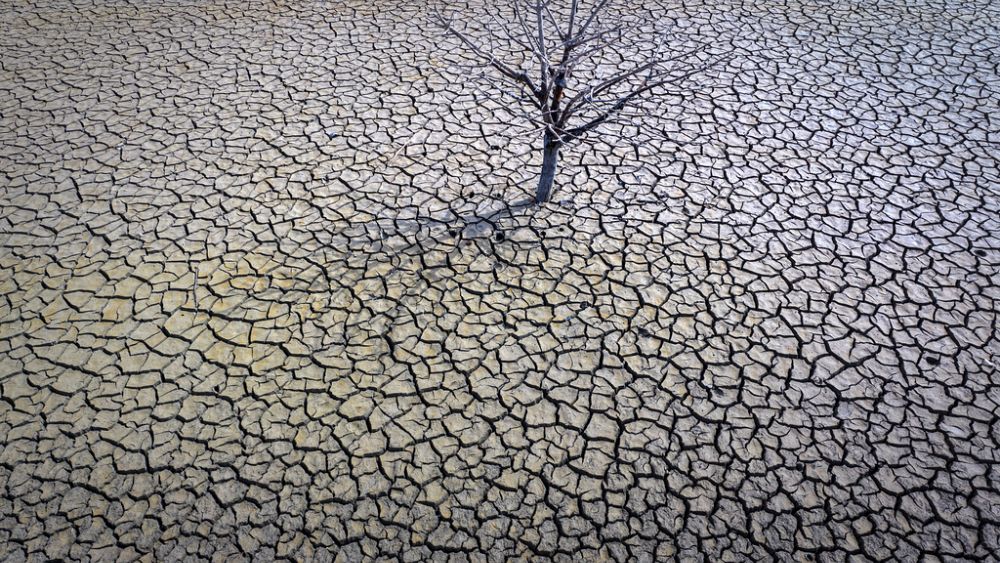Residents in southern Spain face drinking water shortage amid persistant drought

Local residents in villages to the north of Cordoba are receiving water deliveries by truck after record temperatures and drought caused a drinking water basin to dry up.
Residents in southern Spain are having to drink contaminated water after record temperatures and drought during Spring caused a local drinking water basin to dry up.
It has not rained in the villages north of the city of Cordoba for months, and that means that the drinking water from the Sierra de Boyera reservoir is almost empty.
A local water company now collects water from another lake where dairy farmers have discharged manure for years, making the tap water available dangerous to drink and cook with.
Now local residents have to get their drinking water delivered by truck.
“It is not normal for this to happen in the 21st century. But we have to deal with it,” one resident told Euronews.
Around 27 per cent of Spain is experiencing droughts classified as “emergency” or “alert”, according to the Ecological Transition ministry, and water reserves are at 50 per cent of capacity nationally.
In April, the Spanish government asked the European Commission for emergency funds to help protect farmers’ harvests from the drought.
Mainland Spain and Portugal broke temperature records last month, as both nations wilted in an unusually early heatwave that has raised the risk of wildfires.
As the world’s biggest exporter of olive oil and an important producer of fruits and vegetables, the drought has already driven up Spanish olive oil prices to record levels.
Last year, Spain experienced its hottest year since records began, with UN figures suggesting nearly 75 per cent of its land is susceptible to desertification due to climate change.
Experts say climate change driven by human activity is boosting the intensity and frequency of extreme weather events, such as heatwaves, droughts and wildfires.
